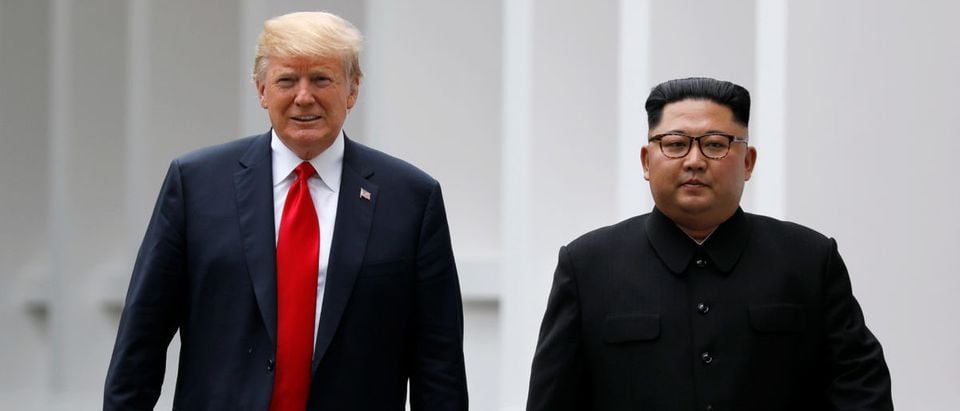President Donald Trump’s approach to national security policy is one centered on rebuilding American strength overseas while deterring and confronting threats to the American people. Nowhere is this strategy better exemplified than in President Trump’s approach to the North Korean problem.
The foolish foreign policies and negligence of past administrations only allowed what was initially a nonexistent threat to accelerate into potential nuclear strikes on our homeland. President Trump’s decisive leadership and adherence to position-of-strength rhetoric has not only brought Kim Jong Un to the negotiating table, but also provided significant momentum towards the denuclearization of the Korean Peninsula and, ultimately, global peace.
How our President was able to turn threats of nuclear Armageddon into handshakes and a signed agreement is nothing short of amazing — but the explanation is clear. Whereas past administrations would “condemn” North Korean bellicose threats, ultimately enabling the hermit kingdom to advance its nuclear program and escalate rhetoric, President Trump put his foot down, promising an unimaginable “fire and fury” response from America’s military.
When Kim regime officials again reignited hostile rhetoric towards the United States amid talks of a potential summit, President Trump abruptly canceled the summit altogether — a negotiation tactic that throws the ball entirely in North Korea’s court. Unsurprisingly, the Kim regime begged for open dialogue, which resulted in the monumental Singapore summit between a sitting U.S. president and a North Korean dictator.
While only time will tell what the historic Singapore summit means for American interests and Asia’s geopolitical future, both President Trump and Kim signed an unprecedented joint agreement pledging to work towards peace and the complete, verifiable and irreversible denuclearization of the Korean peninsula.
Kim Jong Un agreed to close down a missile engine testing site and allow for the remains of U.S. troops lost in the Korean war to be returned home. In return, President Trump announced the end of joint military exercises with South Korea, which North Korea deems a national security threat. As for the end goal of total denuclearization, the fine print — which experts speculate could include withdrawal of U.S. troops in the region and removal of the nuclear umbrella over neighboring Japan and South Korea in exchange for North Korean disarmament — have yet to be determined.
The fact that prior U.S. administrations, for decades, failed to make progress with North Korea means that, at this point, Kim’s relatively advanced arsenal will take a significant time to disarm. But regardless of what the future holds, that President Trump managed to reign a nuke-wielding North Korean dictator into a negotiating room to discuss disarmament is nothing short of extraordinary.
Regional allies — South Korean President Moon, in particular — praise our President for his “meeting of the century,” which “laid a great foundation for peace, not only for the Korean peninsula but for the world.”
Ultimately, the Singapore Summit was a culmination of exceptional leadership, tactful diplomacy and expert negotiation skills on our president’s behalf. It also represents a stark departure from the weak and short-sighted foreign policies of administrations prior. And while this was a huge win for President Trump and the American people, the monumental summit set the stage for a victory for the entire world.
Steven Rogers is a retired LCDR US Navy Office of Naval Intelligence and a member of the DJT Campaign Advisory Board. Steven Rogers is a regular guest on Fox News & CNN.
The views and opinions expressed in this commentary are those of the author and do not reflect the official position of The Daily Caller.


